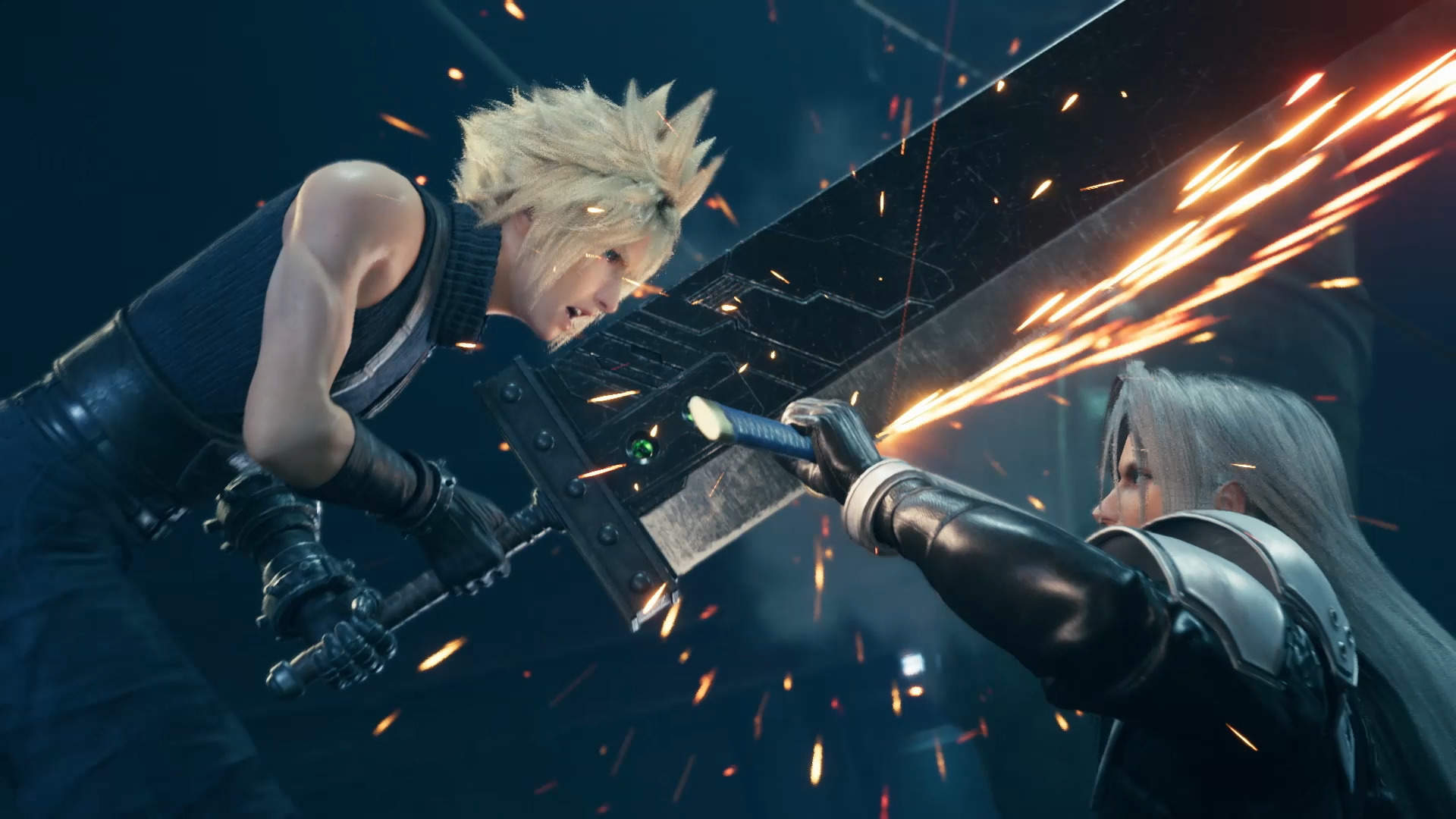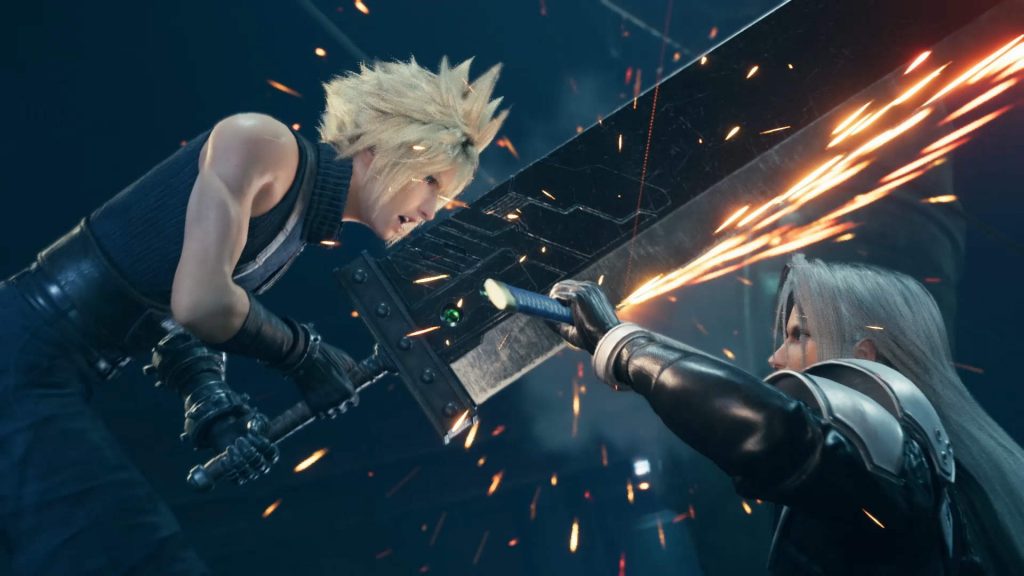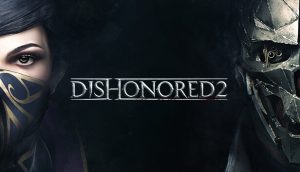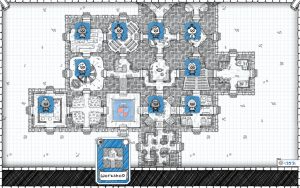The COVID-19 pandemic has turned the world upside down. Nearly every element of everyday life has been changed in some way by this ongoing global event.
While it’s hardly the biggest problem to emerge as a result of these incredible circumstances, it’s certainly worth noting how the world of entertainment has been impacted by the pandemic. With everything from conventions to movie premieres being delayed or canceled, it has been difficult for millions to find the relief they desire during such stressful times.
Despite all of this, it’s been a surprisingly great year for video games. The events of 2020 will almost certainly end up delaying some games (and possibly consoles) until 2021, but we entered the year expecting this to be a special time from gaming, and it has not disappointed in that respect thus far.
Yet, it is with some confidence that I can say that no game released in 2020 so far has impressed me as much as Final Fantasy 7 Remake.
Normally, I wouldn’t justify calling Final Fantasy 7 Remake the best game of 2020 by comparing it directly to the other great games of 2020. After all, those other titles certainly have things to offer which are unique and worthwhile. Yet, the nature of Final Fantasy 7 Remake practically demands that I compare it to three of its closest “Best Game of 2020” competitors: The Last of Us Part 2, Resident Evil 3 Remake, and Animal Crossing: New Horizons.
Those three games share two notable qualities, and the first is greatness. Yes, greatness is subjective, but at the end of the day, I can confidently recommend each of them to just about anyone with a passing interest. The Last of Us Part 2 is a sweeping epic, Resident Evil 3 Remake is a nearly airtight horror experience, and Animal Crossing: New Horizons’ escapist gameplay and wholesome nature have led some to describe it as the most “necessary” game of 2020.
The other quality each of those games share is that they belong to distinguished franchises. Actually, to be more specific and to the point, they each belong to distinguished franchises which their reputation is a bit burdened by.
The Last of Us Part 2 tried to tell the second part of a story many people felt was definitive. At least some of its various controversies can be attributed to its struggles to live up to the expectations set by its name. Resident Evil 3‘s remake arguably lives in the shadow of Resident Evil 2‘s remake, which is quite odd considering that the original Resident Evil 3 also lives in the shadow of its predecessor. New Horizons is certainly great, but it too is burdened by design concepts that have many questioning the line between tradition and innovation.
Then you have Final Fantasy 7 Remake. Like those other games, it must deal with the burden of its name and the legacy of a famous franchise. Unlike those other games, it finds ways to not only creatively play with those expectations but examine and sometimes attack what they mean.
When the idea of a Final Fantasy 7 Remake was first revealed long ago as a tech demo, many fans made their expectations clear. So long as they received a 1:1 remake of Final Fantasy 7 with upgraded visuals and some refinements, they would be happy.
Final Fantasy 7 Remake proved to be much more ambitious than that. Not only did it drastically alter the original’s combat system, but it introduced a bizarre story device in which certain characters in the remake were seemingly aware of the events of the original. On top of that, what appears to be the game’s early primary protagonists are forces who aspire to ensure that the timeline isn’t broken.
Without going into a full breakdown of everything that transpires in the game, Final Fantasy 7 Remake ends with the implication that you have (or have the ability to) change the events fo the past. What happens next is truly anyone’s guess.
You could say that both The Last of Us Part 2 and Final Fantasy 7 attempt to subvert our expectations by delivering something different than we expected, and that’s certainly true to a degree. Yet, there were many times when The Last of Us Part 2 felt almost resentful of needing to continue the previous story. It almost seemed like Naughty Dog wanted to tell a different tale but felt obligated to continue the original’s story in some way. Their apparent resentfulness comes through in some occasionally negative ways.
That’s not really the case with Final Fantasy 7 Remake. For each time that it changes something, it also celebrates the greatness of what came before. It’s not trying to replace the original game, and it’s not trying to become the definitive version of that experience. Instead, it’s trying to offer a kind of “What if?” story that suggests sometimes the best way to experience something new is to wrap it within the casing of the familiar.
I like Final Fantasy 7 Remake for its combat, visuals, great characters, and memorable moments. Yet, I love it and call it one of the best games of the year because of the way that it deals with its legacy.
Final Fantasy 7 Remake doesn’t stick so closely to the original that you’re left feeling like you’ve seen it all. At the same time, it doesn’t attempt to overcome the expectations of its name by attempting to overwrite what came before. It builds upon what came before rather than destroy it entirely.
As we near the next generation of gaming, Final Fantasy 7 offers one of the most compelling examples yet of how a studio can honor the past, embrace the future, and always remember that when you’re dealing with gamers who have seen it all before, you’ve got to find creative ways to show them that they don’t always know what’s coming next.





